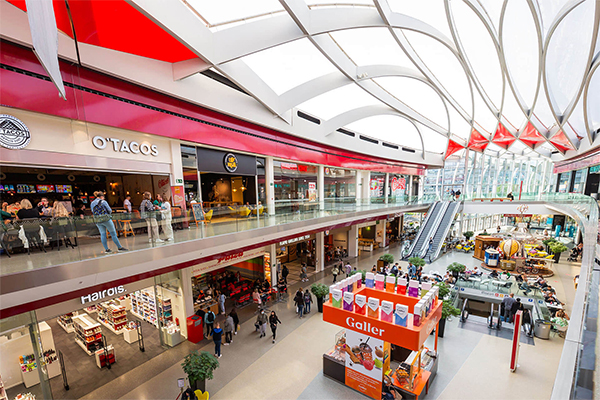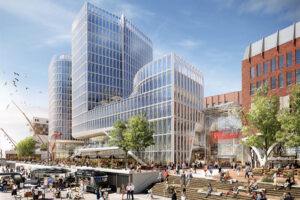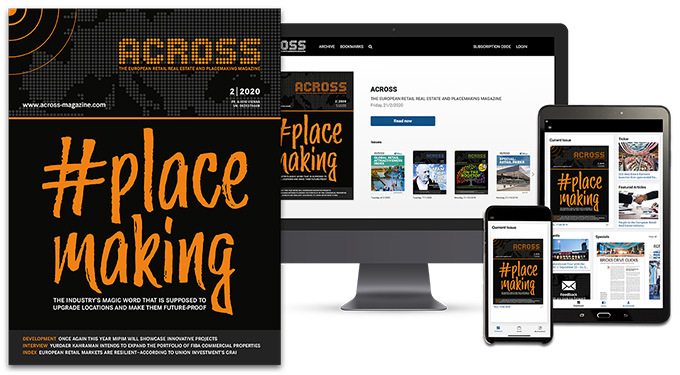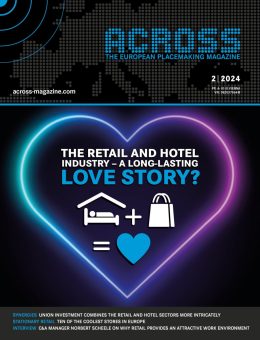ACROSS: You recently closed a Series A funding round, raising close to three million euros from Aconterra and Capricorn Partners. What is the main focus of this funding?
Erwin Buckers: The money will primarily be used to expand our footprint across Europe. We are investing in our technology; the focus is on marketing and sales. We are already active in many European markets, but we want to scale up. Another top priority of ours is to hire talent. There is a bit of consolidation that is taking place. Some companies will cease to exist. As a result, there are a number of talented people who are looking for new opportunities. Generally speaking, finding people who offer a combination of technology and real estate is not easy, but the market has changed recently. Therefore, we are eager to take any chance that we get.
ACROSS: In which markets do you want to grow?
Buckers: Our focus is on big, multi-tenant buildings. We see a clear shift to mixed-use and the many synergies between the classes. We are strong in the retail area simply because we started with retail. We know that asset class very well. It is also the most complicated asset class to deal with since so many different stakeholders, who have very different interests, are involved. Over the last two years, in particular, we have gained a lot of experience in the residential and office areas. Those classes are different, but they are nowhere near as complicated as retail. Focusing on mixed-use is, therefore, not only an answer to a current need or development, but an opportunity for us to show our strength in and knowledge of all classes. We have also become more engaged with travel hubs. We see a great need for our airport and retail station products to communicate quickly and securely.
ACROSS: What is the biggest challenge with mixed-use buildings?
Buckers: Flexibility. Buildings also seem to be static. They change a lot, and they will change even more. That is also a constant reminder to us. If buildings change, our software must be reviewed and constantly changed. We are transforming along with the buildings. The other challenge, or change, is that you have to follow a community idea. The real value for stakeholders of a mixed-use building is when they benefit from each other, and you keep, for example, your local spending in the complex. In real life, you have to bring families from the residential part together with worldwide operating companies from the retail domain. You have to come up with a retail offer that suits the residential tenants. Honestly, there is no easy answer; landlords and property managers are doing a lot of trial and error at the moment. Technology can help a lot.
ACROSS: How do you measure tenant expectations?
Buckers: We recently conducted research on what tenants are looking for in an app. We surveyed rental tenants, but the findings generally apply to other asset classes as well. What really surprised us was that 54% would consider paying for a tenant app. It simply shows the needs of the tenants, and that is a game changer. Tenants – no matter whether private or business – want quick and accessible services. Our society is so used to solving problems and generally interacting via smartphones, and they have smart home solutions in their apartments. So, it is only logical to deal with everything related to the property via an app, especially when we consider that they spend, on average, 30% of their income on rent. However, only 17% of them are currently using an app. There will be a point at which tenants expect an app from their landlord. That is the case for every asset class.

ACROSS: Why are landlords in the retail real estate sector still hesitant to launch apps?
Buckers: Real estate, in general, is always a bit late to the party in terms of innovation. That is a challenge for the industry, but it is, of course, an advantage for us. There are different reasons for that. One reason is the management structure of the companies themselves. The management still primarily consists of older individuals, with fewer innovative people in leadership. The retail real estate industry is known for moving slowly, even though it has learned to be way more dynamic over the last few years, but it takes time. We see many people from hospitality and user experience industries moving into the retail real estate world. That is a great sign, because those companies know how to serve people, how to interact with them, and how to make money from them.
ACROSS: Where is the product going? What are your customers asking for?
Buckers: Tenants prefer chat options, such as direct messaging and the creation of group chats for a building. That has become more important. Therefore, one of the focal points of our tech team was to deliver a WhatsApp-like app with more privacy options. That was one of the biggest functionalities that we launched earlier this year for a big residential client, and we intend to roll it out to the rest of our client base this year. It is still in its early stages, but the initial results are outstanding. ESG, of course, is also a vast topic, and apps are an excellent tool for monitoring and showing results. Clients, therefore, have asked for a lot of solutions in that particular field. That is especially important when it comes to improving the communication between landlords and tenants. For example, we have created a way to send out fast polls, surveys, and good visualization of data on energy consumption.
ACROSS: What are some of the other reasons that technology-based solutions will become more visible in the retail real estate world?
Buckers: That was very obvious at MIPIM this spring; most companies no longer use the term mixed-use. They only speak about community, but the meaning is the same. No matter whether you call it mixed-use or community – it is a great catalyst for Proptech. Community building is extremely important within the placemaking industry. Landlords are struggling with unused space, and they have come up with very creative ideas, such as co-living and flexible workspace. They want to monetize their space; that is their job. Therefore, they also see the benefit of apps. They can still make their buildings super profitable, but they have to provide excellent service, and that includes excellent digital service. That is also why there is no separation between the asset classes at our company. There are hardly any new big city developments that are defined by only one asset class.





